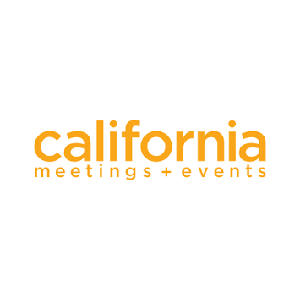Corporate Events Definition: Complete Professional Guide
More than 80 percent of companies cite corporate events as vital for achieving key business goals. These gatherings shape company culture, spark innovation, and drive collaboration among teams, clients, and stakeholders. Understanding what makes corporate events so impactful helps organizations unlock greater value from every meeting, conference, or seminar they plan. This guide reveals why strategic event planning is essential for modern business success.
Table of Contents
- Corporate Events: Core Definition And Purpose
- Major Types Of Corporate Events Explained
- Essential Elements And Success Factors
- Planning Processes And Legal Considerations
- Common Misconceptions About Corporate Events
Key Takeaways
| Point | Details |
|---|---|
| Strategic Importance | Corporate events are essential tools for achieving specific business objectives and fostering communication and engagement. |
| Diverse Event Types | Businesses utilize various event types, including seminars, trade shows, and team-building activities, each serving distinct purposes. |
| Planning Essentials | Successful corporate events rely on thorough planning, audience engagement, and seamless logistics to achieve meaningful outcomes. |
| Common Misconceptions | Corporate events are often viewed as unnecessary expenditures, but they are vital for organizational growth and strategic alignment. |
Corporate Events: Core Definition and Purpose
Corporate events represent strategic gatherings organized by businesses to achieve specific professional objectives, extending far beyond simple meetings or social interactions. As ijbel research indicates, these events encompass a wide range of activities including meetings, conferences, conventions, incentive programs, exhibitions, seminars, summits, and training sessions.
At their core, corporate events serve multiple critical purposes for organizations. According to penguins.co.uk, these professional gatherings can target diverse audiences, including:
- Employees: Internal communication and team building
- Board Members: Strategic planning and governance
- Stakeholders: Investment and company performance updates
- Customers: Relationship building and product demonstrations
- Potential Clients: Marketing and business development
The strategic design of corporate events allows businesses to create meaningful connections, share critical information, and drive organizational goals. Whether it’s a small team meeting or a large international conference, these events provide platforms for communication, learning, networking, and collaboration that extend well beyond traditional business interactions. By carefully curating experiences that engage participants, companies can transform these gatherings from mere logistical necessities into powerful tools for organizational growth and success.
With corporate event agency services from Morocco Events, businesses can leverage professional expertise to design events that not only meet but exceed their strategic communication and engagement objectives.
Major Types of Corporate Events Explained
Corporate events are diverse and strategically designed to meet specific organizational objectives. According to uk.indeed.com, businesses utilize several key event types to achieve their professional goals, each serving a unique purpose in corporate communication and engagement.
Key types of corporate events include:
- Seminars and Conferences: Platforms for knowledge sharing, industry insights, and professional development
- Trade Shows: Opportunities for product showcasing, networking, and market exploration
- Team Building Events: Designed to enhance collaboration, morale, and internal relationships
- Product Launches: Introducing new offerings to stakeholders, media, and potential customers
- Appreciation Events: Recognizing employee achievements and maintaining organizational motivation
As evm.institute highlights, modern corporate events have expanded to include virtual and hybrid formats. These digital platforms enable organizations to reach global audiences, overcome geographical limitations, and create inclusive experiences that transcend traditional event boundaries.
For businesses seeking exceptional event planning, Morocco’s event professionals offer comprehensive strategies to transform these corporate gatherings into powerful communication and engagement tools.
Essential Elements and Success Factors
Corporate events require meticulous planning and strategic execution to achieve meaningful outcomes. evm.institute emphasizes that successful corporate events are built on four critical foundational elements:
- Thorough Planning: Comprehensive strategy development
- Audience Engagement: Creating interactive and meaningful experiences
- Seamless Logistics: Efficient operational management
- Post-Event Evaluation: Systematic performance assessment
Technology plays a transformative role in modern corporate event design. Advanced digital tools now enable real-time interaction, hybrid participation models, and sophisticated data tracking. Event organizers can leverage event management software, virtual networking platforms, and interactive presentation technologies to create more dynamic and inclusive experiences that transcend traditional boundaries.
The ultimate measure of a corporate event’s success lies not just in its execution, but in its ability to deliver tangible business outcomes. This requires a holistic approach that integrates clear objectives, participant-centric design, and robust measurement mechanisms. By focusing on creating value, fostering meaningful connections, and aligning event experiences with broader organizational goals, businesses can transform corporate events from mere gatherings into powerful strategic instruments.
For organizations seeking exceptional event planning expertise, Morocco’s event professionals offer comprehensive strategies to elevate corporate events from standard proceedings to extraordinary experiences.
Planning Processes and Legal Considerations
Corporate event planning is a complex process that demands strategic precision and comprehensive preparation. According to uk.indeed.com, successful event organization hinges on several critical planning components:
- Goal Setting: Defining clear, measurable objectives
- Budget Management: Establishing financial parameters
- Venue Selection: Identifying appropriate event spaces
- Legal Compliance: Navigating regulatory requirements
- Communication Strategy: Ensuring stakeholder alignment
Legal considerations form a crucial layer of corporate event planning that extends far beyond simple logistics. Event organizers must carefully navigate multiple legal dimensions, including liability protection, insurance requirements, contractual agreements, and participant consent. This involves comprehensive risk assessment, drafting precise event agreements, securing appropriate insurance coverage, and ensuring full compliance with local and national regulations governing corporate gatherings.
Contingency planning represents another critical aspect of professional event management. Successful events require robust backup strategies that anticipate potential disruptions, from technological failures to unexpected logistical challenges. This involves developing detailed emergency response protocols, maintaining flexible event designs, and creating adaptive communication channels that can quickly respond to unforeseen circumstances.
For organizations seeking expert guidance in navigating these complex planning landscapes, Morocco’s event professionals offer sophisticated, comprehensive event management solutions that transform potential challenges into seamless, memorable experiences.
Common Misconceptions About Corporate Events
Corporate events are frequently misunderstood, with many organizations underestimating their strategic importance. uk.indeed.com challenges the prevalent misconception that these events are merely extravagant and unnecessary, emphasizing that they are critical business tools when planned effectively.
Common misconceptions about corporate events include:
- Myth: Corporate events are just expensive social gatherings
- Reality: They are strategic platforms for achieving business objectives
- Myth: Only large corporations benefit from professional events
- Reality: Organizations of all sizes can leverage event experiences
- Myth: Events are optional business activities
- Reality: They are essential for team building, brand promotion, and communication
Many business leaders mistakenly view corporate events as cost centers rather than investment opportunities. In truth, these gatherings serve multiple sophisticated purposes: facilitating knowledge transfer, strengthening organizational culture, generating networking opportunities, and creating measurable business value. Advanced event strategies transform these experiences from simple meetings into powerful instruments of organizational growth and strategic alignment.
For businesses seeking to transcend these misconceptions, Morocco’s event professionals offer innovative approaches that demonstrate the true potential of strategic corporate event planning.
Elevate Your Corporate Events with MoroccoEvents
Organizing a corporate event that truly drives business goals requires more than just a venue or a schedule. The article highlights key challenges such as meticulous planning, audience engagement, legal compliance, and transforming gatherings into strategic opportunities. If you want to move beyond misconceptions and create impactful conferences, product launches, or team building experiences, you need a partner who understands how to blend innovation with local expertise.
At MoroccoEvents, we specialize in delivering fully customized corporate event solutions right here in Marrakech and across Morocco. Our deep knowledge of event logistics, cutting-edge technology integration, and access to premier venues empower us to turn your vision into a memorable, business-driving experience. Whether you are aiming to captivate clients, align your team, or enhance your brand presence, our professional event planners use proven strategies to exceed your expectations.
Ready to transform your next corporate event into a powerful tool for success? Discover how our experienced team can help by exploring our comprehensive event management services at MoroccoEvents.com today. Don’t wait to create an event that inspires connection, engagement, and growth. Take the first step now to make your corporate gatherings truly exceptional.
Frequently Asked Questions
What are the different types of corporate events?
Corporate events can be categorized into several types, including seminars, conferences, trade shows, team building events, product launches, and appreciation events, each serving a unique purpose in corporate communication and engagement.
Why are corporate events important for businesses?
Corporate events are essential as they facilitate team building, strengthen internal and external relationships, foster communication, promote brand visibility, and help achieve specific business objectives such as learning and networking.
How can technology enhance corporate events?
Technology enhances corporate events through tools like event management software, virtual networking platforms, and interactive presentation technologies, enabling real-time interaction and creating more dynamic, inclusive experiences.
What are the key elements of successful corporate event planning?
Successful corporate event planning involves thorough planning, audience engagement, seamless logistics, and post-event evaluation. These foundational elements ensure that the event meets its objectives and delivers value to participants.




























